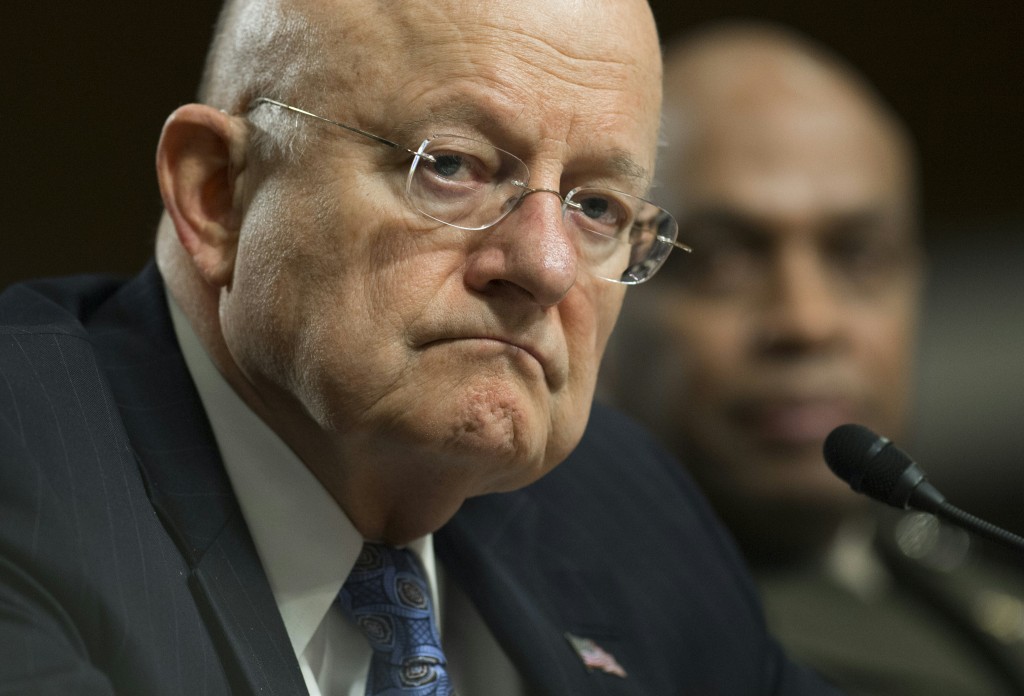
The global threat posed by the Islamic State group is still rising but US-based homegrown extremists pose the biggest danger to the homeland, Washington’s top spy said February 9. In a report prepared for US lawmakers before he was due to address a Senate panel, Director of National Intelligence James Clapper said US-based extremists pose “the most significant Sunni terrorist threat.”
/ AFP PHOTO /
SEOUL , South Korea (AFP) — Top US intelligence official James Clapper asked South Korean officials during a recent visit for Seoul’s bottom line in any future negotiation between the US and North Korea on a permanent peace treaty, a report said Saturday.
The 1950-53 Korean War ended with an armistice that has never been formalized by a peace treaty, meaning that the two Koreas technically remain at war.
Pyongyang wants a treaty to be the focus of any dialogue with Washington, while the United States, backed by Seoul, insists the first priority is the issue of North Korea’s nuclear disarmament.
During a low key, two-day visit to the South last week, Clapper discussed possible responses to any fresh dialogue push by North Korea following its ongoing ruling party congress, South Korea’s JoongAng Daily reported.
“There was an inquiry into how much South Korea is willing to concede in case the United States begins discussions with North Korea on a possible peace treaty,” the newspaper quoted an unidentified senior foreign affairs and security official as saying.
US and North Korean officials have held a number of informal discussions in neutral venues in recent years, but they are understood to have stalled over the basis for any official dialogue.
“The reason that Clapper referred to peace treaty talks is to cope with the North making a fresh proposal for a peace treaty following the congress,” another official told the newspaper.
Any peace treaty would have to be agreed between the two sides involved in the Korean conflict — North Korea and China on one hand and the US-led United Nations on the other.
Seoul and Washington insist North Korea must take tangible steps towards denuclearization before a peace treaty can be put on the table.
“There is no change to this stance,” a South Korean foreign ministry official said when asked to comment on the news report.
During his visit, Clapper reportedly held closed-door talks with South defense, military and presidential officials.
ckp/gh/mtp
© 1994-2016 Agence France-Presse








